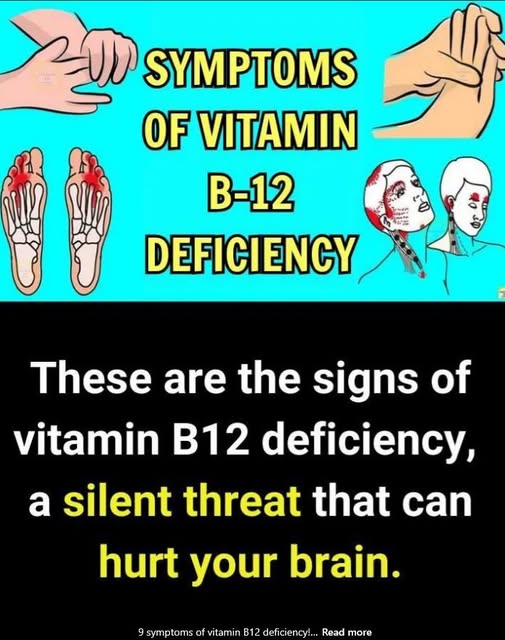When B12 is deficient, your red blood cell production decreases, which can reduce oxygen transport throughout the body. This can cause feelings of breathlessness or dizziness.
6. Cognitive Issues
B12 plays a role in brain health. A lack of it can cause confusion, memory loss, difficulty concentrating, and even changes in mood or behavior. Long-term deficiency may increase the risk of dementia.
7. Mood Swings and Depression
There’s a connection between vitamin B12 and mental health. Deficiency can contribute to symptoms of depression, irritability, and mood swings due to its effect on the nervous system and serotonin production.
8. Glossitis and Mouth Ulcers
A swollen, inflamed tongue (glossitis) can be a sign of B12 deficiency. You may also experience mouth ulcers or sores, both of which can cause discomfort while eating or talking.
9. Vision Problems
Vitamin B12 deficiency can lead to vision problems, including blurred or double vision, due to damage to the optic nerve, a condition known as optic neuropathy.
If you suspect you have a B12 deficiency, it’s important to consult with a healthcare professional for proper diagnosis and treatment. B12 levels can be tested via a blood test, and deficiency is typically treated with B12 supplements or injections.



Yo Make również polubił
Decadent Banana Pudding Cheesecake: A Creamy Dream Dessert
Creamy Lemon Ginger Morning Smoothie | Gut-Healthy and Energizing Start
Slim & Crunchy Cucumber Power Salad: A Daily Favorite
Strawberry Cheesecake Banana Pudding: A Dreamy Dessert with Layers of Flavor!